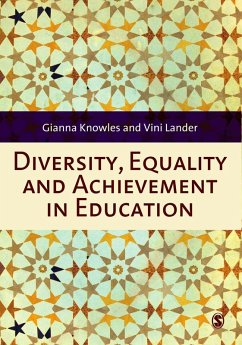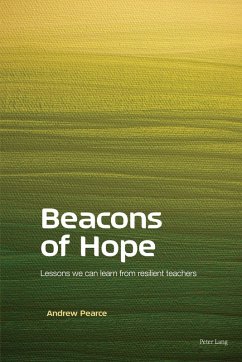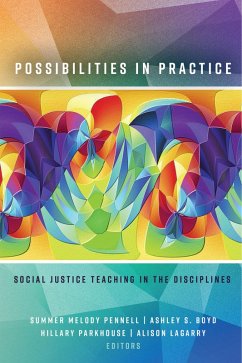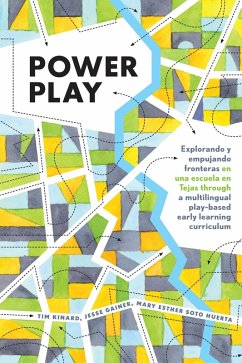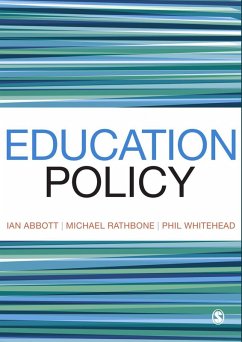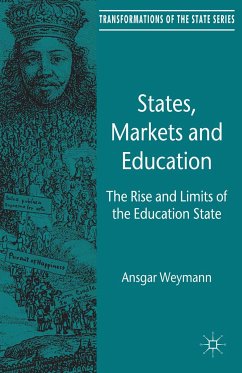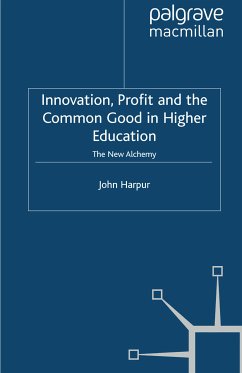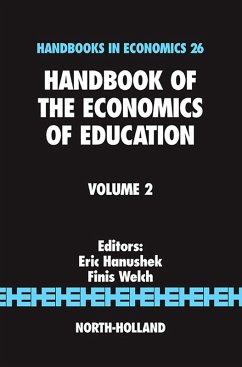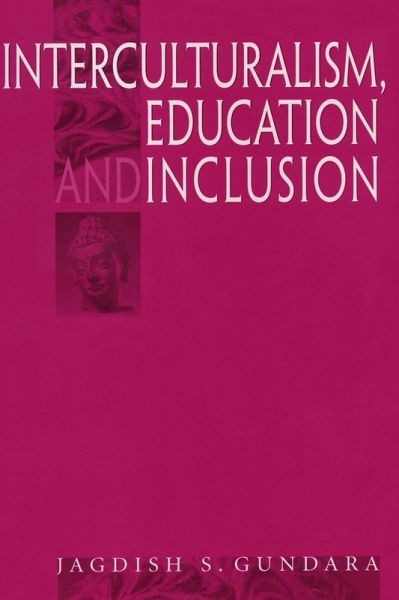
Interculturalism, Education and Inclusion (eBook, PDF)
Versandkostenfrei!
Sofort per Download lieferbar
42,95 €
inkl. MwSt.
Weitere Ausgaben:

PAYBACK Punkte
21 °P sammeln!
`Jagdish Gundara has made a very substantial contribution to the field with this work and it is to the rest of us to make connections with it and help in the gigantic tasks of finding solutions'- Tony Booth, Canterbury Christ Church University, British Journal of Educational Studies`This work deals with the question of how education can help in the task of developing cohesive civil societies by turning notions of singular identities into those of multiple ones, and by developing a shared and common value system and public culture. Jadgish S Gundara begins with a mini-biography of his own histo...
`Jagdish Gundara has made a very substantial contribution to the field with this work and it is to the rest of us to make connections with it and help in the gigantic tasks of finding solutions'- Tony Booth, Canterbury Christ Church University, British Journal of Educational Studies
`This work deals with the question of how education can help in the task of developing cohesive civil societies by turning notions of singular identities into those of multiple ones, and by developing a shared and common value system and public culture. Jadgish S Gundara begins with a mini-biography of his own history, which he describes as an "intercultural apprenticeship", and in which the interweaving of different strands of identity is strikingly described. His first chapter then presents "Multicultural Britain". Here Jadgish S Gundara argues that the post-war immigrant presence has highlighted aspects of British historical diversity - Britain's permanent multi-culturalism and addresses issues of group identity, culture and racism. Following chapters discuss basic issues in intercultural education; practicing intercultural education; post-school intercultural education; interculturalism in Europe; the role of the state; building a common and shared value system; Asian and global perspectives; and knowledge, social science and the curriculum. Jadgish S Gundara has a personal perspective on education issues influenced by his involvement for many years. This is an eloquent book' - Race Relations
`Jagdish S Gundara's own early experiences have given him unique insights into both the problems and the possibilities of relationships between cultures. His book reflects a life dedicated to fostering positive intercultural relations and provides an analysis of the role of education in overcoming the barriers. All who are interested in building genuinely inclusive notions of education and citizenship will benefit from reading this impressive book' - Geoff Whitty, Karl Mannheim Professor of Sociology of Education, University of London
`This is a most interesting, accessible and useful book, which deserves to be read by a wide range of education practitioners from school, further education and not least the policy makers in these sectors' - Stephen Bigger, Escalate
Jagdish S Gundara raises a range of critical issues for educators as a consequence of historical and contemporary aspects of social diversity. Using a historical and social science framework, the author examines issues concerning national minorities and immigrant communities. He outlines a view of multicultural Britain, and shows how education at all levels needs to change to embrace an intercultural position. The book also deals with interculturalism in Europe and Asia, the role of state organizations, and the need to foster `communities of hope'.
Based on the authors professional experience in schools, the community and further and higher education, the book assumes no detailed knowledge, and aims to make the concepts of intercultural education accessible to a wide audience.
`This work deals with the question of how education can help in the task of developing cohesive civil societies by turning notions of singular identities into those of multiple ones, and by developing a shared and common value system and public culture. Jadgish S Gundara begins with a mini-biography of his own history, which he describes as an "intercultural apprenticeship", and in which the interweaving of different strands of identity is strikingly described. His first chapter then presents "Multicultural Britain". Here Jadgish S Gundara argues that the post-war immigrant presence has highlighted aspects of British historical diversity - Britain's permanent multi-culturalism and addresses issues of group identity, culture and racism. Following chapters discuss basic issues in intercultural education; practicing intercultural education; post-school intercultural education; interculturalism in Europe; the role of the state; building a common and shared value system; Asian and global perspectives; and knowledge, social science and the curriculum. Jadgish S Gundara has a personal perspective on education issues influenced by his involvement for many years. This is an eloquent book' - Race Relations
`Jagdish S Gundara's own early experiences have given him unique insights into both the problems and the possibilities of relationships between cultures. His book reflects a life dedicated to fostering positive intercultural relations and provides an analysis of the role of education in overcoming the barriers. All who are interested in building genuinely inclusive notions of education and citizenship will benefit from reading this impressive book' - Geoff Whitty, Karl Mannheim Professor of Sociology of Education, University of London
`This is a most interesting, accessible and useful book, which deserves to be read by a wide range of education practitioners from school, further education and not least the policy makers in these sectors' - Stephen Bigger, Escalate
Jagdish S Gundara raises a range of critical issues for educators as a consequence of historical and contemporary aspects of social diversity. Using a historical and social science framework, the author examines issues concerning national minorities and immigrant communities. He outlines a view of multicultural Britain, and shows how education at all levels needs to change to embrace an intercultural position. The book also deals with interculturalism in Europe and Asia, the role of state organizations, and the need to foster `communities of hope'.
Based on the authors professional experience in schools, the community and further and higher education, the book assumes no detailed knowledge, and aims to make the concepts of intercultural education accessible to a wide audience.
Dieser Download kann aus rechtlichen Gründen nur mit Rechnungsadresse in A, D ausgeliefert werden.




